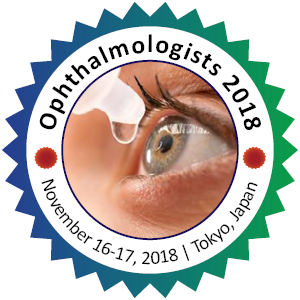Athar Shadmani
Shiraz University of Medical Sciences, Iran
Title: Comparison of effects of activated omental cell with fat derived stem cell on rat limbal corneal alkaline Injury
Biography
Biography: Athar Shadmani
Abstract
Aim is to investigate whether autologous activated omental cells are as effective as fat derived stem cells in healing process of alkaline burn in limbus of rats. Corneal alkaline burn was created in three groups of rats (each group was composed of six rats). Then each group were treated differently : Group-1 (control group) with topical medication only, Group-2: Subconjunctivally injected by autologous activated omental cell (AAOC) after alkaline burn induction , Group-3: Subconjunctivally injected by non-autologous abdominal Fat Derived Stem Cells (FDSC). Clinical outcome was evaluated after 2 months by corneal reepithelization, corneal opacity and neovascularization. Pathologic study was done to asses corneal integrity and cell proliferation. After three weeks all three groups had relatively same degree of corneal neovascularization and opacity. But at the time of 2-month follow-up, Group-3 rats showed the best clinical results with more clear, healed cornea compared with other groups. All rats on group-1 developed severe central corneal neovascularization and opacity with no healing. Auto evisceration was done in two of them. In group-2, most cases achieved a clear cornea with peripheral neovascularization two of them developed central corneal neovascularization, but in group-3, none of the rats developed central corneal neovascularization and all corneas were relatively clear with no epithelial defects. Activated omental cells are as effective as fat derived stem cells in prevention of corneal neovascularization and wound healing after alkaline burn. Some differences between group-2 and 3 were detected, that should be evaluate in future studies

